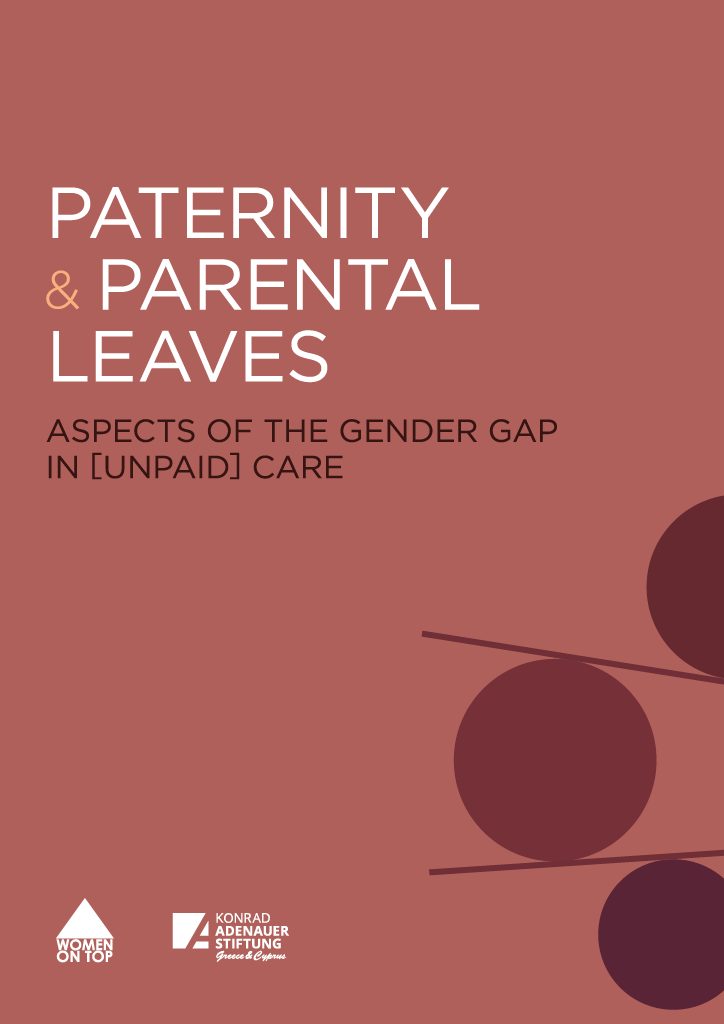
Women On Top conducted the survey “Paternity & Parental Leaves – Aspects of the gender gap in (unpaid) care”, with the support of the Konrad Adenauer Stiftung Greece and Cyprus, with the aim of outlining the barriers that prevent men from making use of parental leaves, investigating the gender gap in the use of paternity leave and formulating policy proposals to encourage wider use of such leaves by fathers.
Despite the documented benefits of increasing men’s involvement in raising and caring for their children, this still remains a predominantly ‘female’ affair. Women on Top’s research explores and captures this gap, showing the different concerns of men and women in relation to the reconciliation of work and family life, which respectively reflect the different gender perceptions of their parenting role, in line with dominant gender stereotypes .
Parental leaves are part of policy measures to support working parents to meet their work and childcare obligations. They are, therefore, important tools for promoting a more equal distribution of caring responsibilities between women and men, mothers and fathers. However, it is crucial that proposals concerning changes in the existing legal framework that strengthen the equal use of paternity leaves are accompanied by institutional interventions to overturn the inequalities that are still recorded.
In addition, the effort for a more equal distribution of care responsibilities between men and women should not and cannot be exhausted in institutionalized measures, detached from wider interventions and policies in the direction of gender equality. Aspects of gender inequality play out on multiple levels, ultimately contributing to the maintenance of the dominant gender order. Therefore, any effort to reduce the gender gap in parental care cannot fail to consider wider inequalities and should be accompanied by corresponding measures to reduce them.
We hope that all of you who read the research will participate in spreading the message about the importance and value of men’s use of paternity leave in your own way, and take in your own sphere of influence, small or large steps that will make the vision of equal participation in care a reality.

